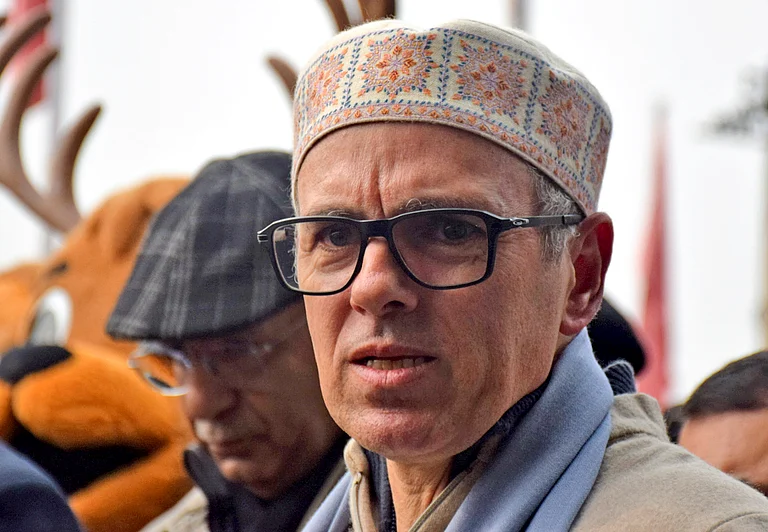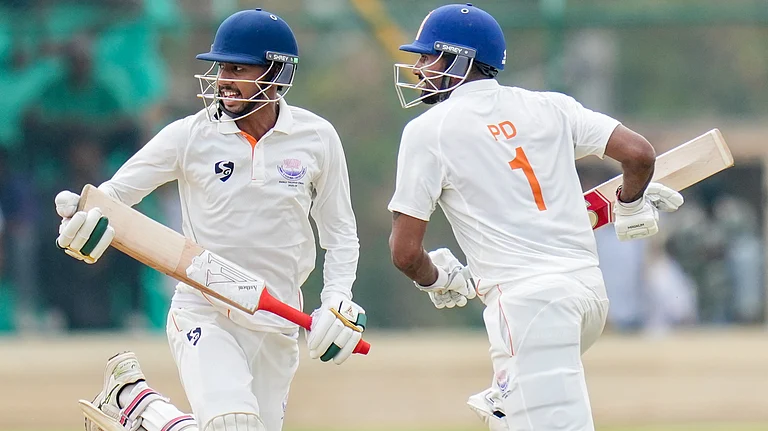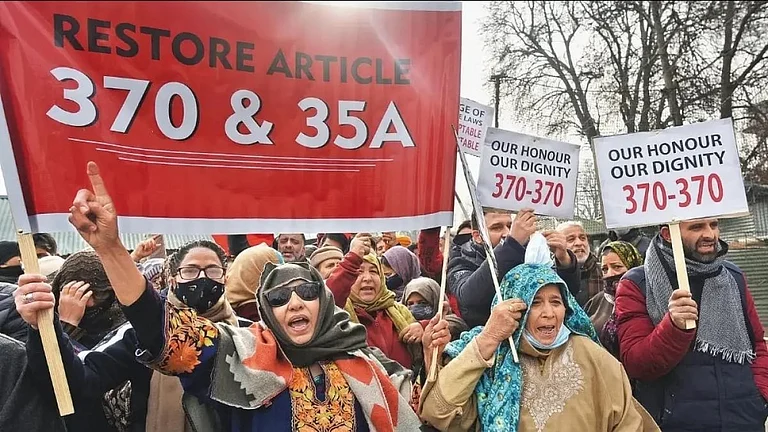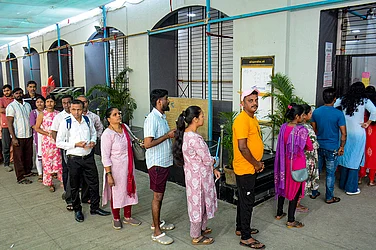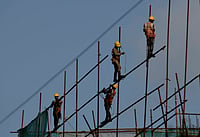Political leaders in Jammu and Kashmir were placed under a house arrest on Sunday to prevent them from paying homage to the 22 people killed on July 13 during the Dogra regime in 1931. The official holiday, known as the “Martyr’s Day” was scrapped after the abrogation of Article 370 in 2019. Among those placed under house arrest was J&K Chief Minister Omar Abdullah who was detained once he returned from Delhi. This marked the first time a sitting CM of the state was placed under house arrest.
Anand Grover, a senior advocate practicing at the Supreme Court asserts that the legal apparatus is just being used to silent dissent. "All citizens have the right to free speech. The commemoration was happening peacefully until 2019. It is non-violent commemoration. It is not against the government of India. What is the reason to stop it?," he says.
House arrests in Kashmir are not a scarce phenomenon, especially post the abrogation of Article 370.
The Laws
In preparation for the revocation of J&K’s special status, Omar & Farooq Abdullah, Mehbooba Mufti, Mirwaiz Umar Farooq, and many others were arrested or confined at home. An unprecedented deployment of Public Safety Act (PSA) and Criminal Procedure Code (CrPC) ensued.
The PSA allows detention without trial for up to two years in the name of national security or public order whereas the CrPC empowers district magistrates to prohibit gatherings and movements in the interest of maintaining law and order.
"In my opinion, these laws are unconstitutional. Their purpose is to stop anybody from exercising their right to free speech and to demonstrate. It is happening all over the country. Kashmir is just more aggressive. What is UAPA being used for? Now, they are coming down to the Maharashtra Public Security Act. It is to clamp down on any kind of dissent," says Advocate Grover.
House Arrests in Kashmir After Abrogation of Article 370
Omar Abdullah was placed under house arrest at his home which was later declared to be a sub jail. He was formally detained under the PSA till March 2020. His father, Farooq Abdullah was also detained during this period.
Mehbooba Mufti, former Chief Minister and President of the Peoples Democratic Party (PDP), was similarly placed under house arrest at the Hari Niwas guest house and later under PSA.
Mirwaiz Umar Farooq, the leader of the Hurriyat Conference and head priest of Jamia Masjid Srinagar, was placed under house arrest without formal detention initially, with his Friday sermons banned for years. He was put under house arrest ahead of the abrogation of Article 370 and 35 A on August 5, 2019. His religious functions were only eased in 2023 which he described as the “toughest time”.
On August 5, 2023 and 2024, the anniversary of the reading down of Article 370, several political leaders from across the spectrum were placed under house arrest. The leaders called the arrests as illegal and undemocratic, accusing the BJP of betraying the people of J&K.
Pre-Abrogation Era
House arrest was a key tool employed by the J&K administration, particularly against separatist leaders.
Syed Ali Gheelani, a Kashmiri separatist leader was first placed under house arrest by the Srinagar authorities ahead of the 2002 elections. They had made the arrest to allegedly prevent him from making a destabilizing public address. Gheelani was placed under house arrest several times after that with his longest confinement coming in 2013 where he was placed under detention for five years.
Shabir Shah, another separatist leader accumulated over 30 years in jails with various house arrests and detentions. He was also detained alongside Geelani in 2015 and served a continuous 180 days under house arrest.
Several Hurriyat leaders including Yasin Malik were placed under house arrest after the Shopian unrest in June 2009. Yasin was released earlier but was subject to subsequent house arrests later. He was placed under house arrest after he arrived at the airport from Pakistan.








